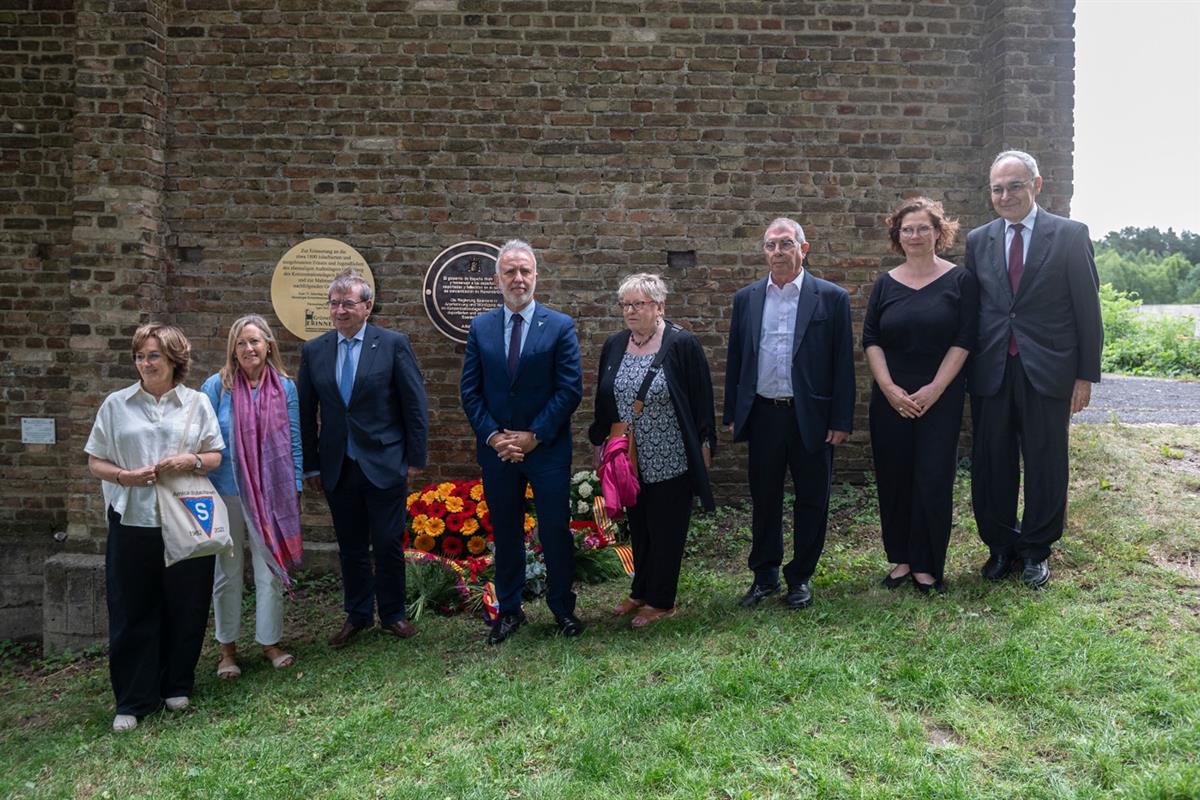The Government of Spain pays tribute to the 120 Spanish women deported to the Ravensbrück concentration camp
News - 2025.7.3
 The Minister for Territorial Policy and Democratic Memory, Ángel Víctor Torres, presided over the tribute to the Spanish women who were deported to the Ravensbrück Nazi concentration camp, at a ceremony held at the camp's memorial site
The Minister for Territorial Policy and Democratic Memory, Ángel Víctor Torres, presided over the tribute to the Spanish women who were deported to the Ravensbrück Nazi concentration camp, at a ceremony held at the camp's memorial site
The Government of Spain has paid tribute in Germany to the Spanish women who were deported to the Nazi concentration camp of Ravensbrück, in a ceremony held at the camp's Memorial itself, presided over by the Minister for Territorial Policy and Democratic Memory, Ángel Víctor Torres.
The Ravensbrück facility was specifically for women and was located near the town of Fürstenberg, some 90 kilometres north of Berlin. They had a planned capacity of 4,000 people, but were soon overwhelmed and successive extensions were carried out. It has been estimated that over 132,000 women prisoners passed through Ravensbrück, many of whom were accompanied by children and infants, of whom only 40,000 survived.
During his speech, Minister Torres recalled the 120 Spanish women of Ravensbrück, who were arrested and imprisoned in France for engaging in acts of resistance against the Nazi occupation. "Some of them, after fighting in Spain in defence of the Second Republic, crossed the Pyrenees to continue fighting fascism. This earned them the label of political prisoners, a red triangle that condemned them to systematic exploitation as forced labour," he said.
Torres highlighted the terrible conditions these women suffered and stressed the need to "honour them, remember them and recover their memory".
The minister reiterated the Government of Spain's commitment to the victims. "Today is a historic day," he said. "30 April this year marked the 80th anniversary of the liberation of this camp. What better moment to recognise with a commemorative plaque the example of the 120 Spanish women who were prisoners in this camp".
During his speech, the minister also emphasised the "double victimisation" of these prisoners for being women, since, for the Nazi extermination machine, they were, like children, "even more expendable than men".
Torres, who was accompanied by the Secretary of State for Democratic Memory, Fernando Martínez; Pascual Navarro, Spanish Ambassador to Germany; Piedad Solans, representing Amical de Ravensbrück; and Concha Díaz, vice-president of Amical de Mauthausen, remarked that the "duty", but also the "vocation", of the Government of Spain is "to recover the memory of the victims, and to honour the principles of truth, justice, reparation and guarantees of non-repetition".
Exhibition 'Spain in Freedom. 50 years'
After visiting the Ravensbrück Memorial, this afternoon, Minister Ángel Víctor Torres will preside over the opening at the Spanish Embassy in Germany of the exhibition 'Spain in Freedom. 50 years', which recognises the role of the many social groups and institutions that made the transition possible, underlining the importance of democracy at a time when it is under threat in many parts of the world.
Torres explained that the exhibition takes a look at the rights acquired in democracy, the social advances and the consolidation of the system of freedoms in this half-century. The minister added that "this 50th anniversary is not an exercise in nostalgia. It is an exercise in conscience, in gratitude to those who fought when it was not easy, of pride in what we have achieved and of responsibility for what remains to be done.
Non official translation





